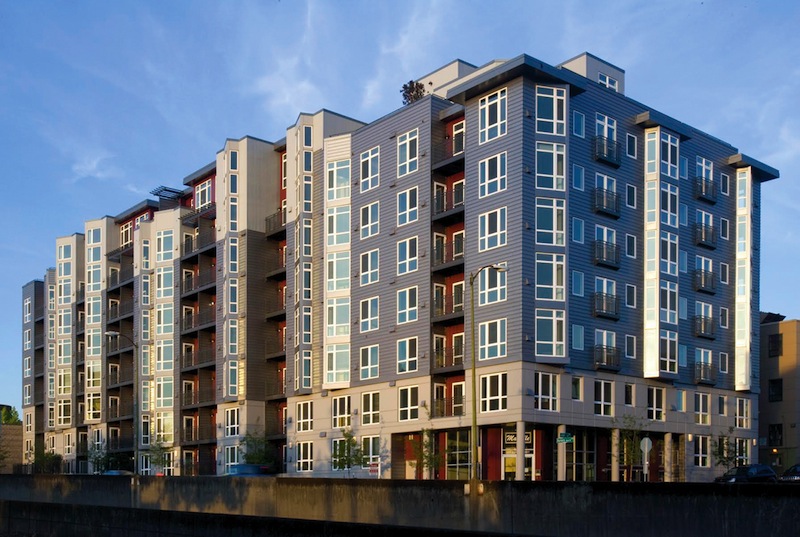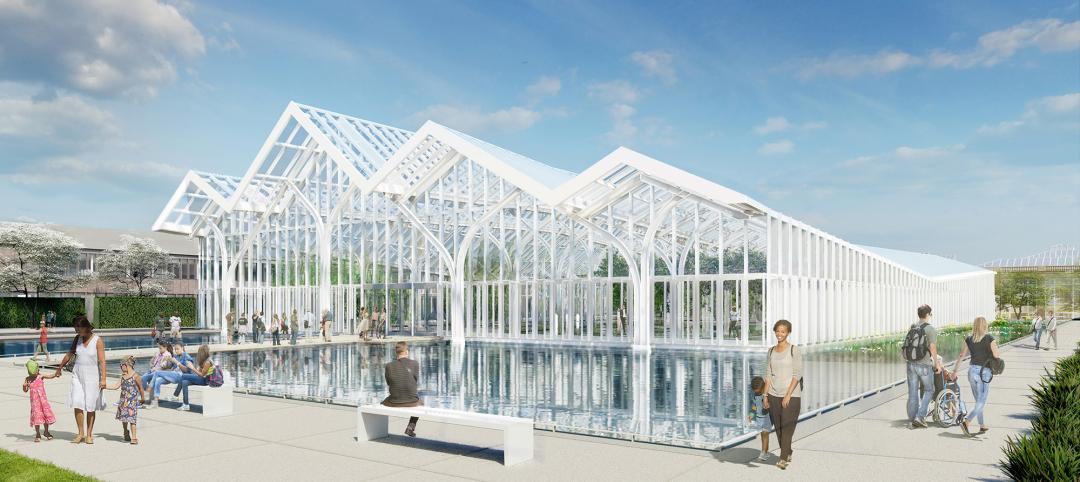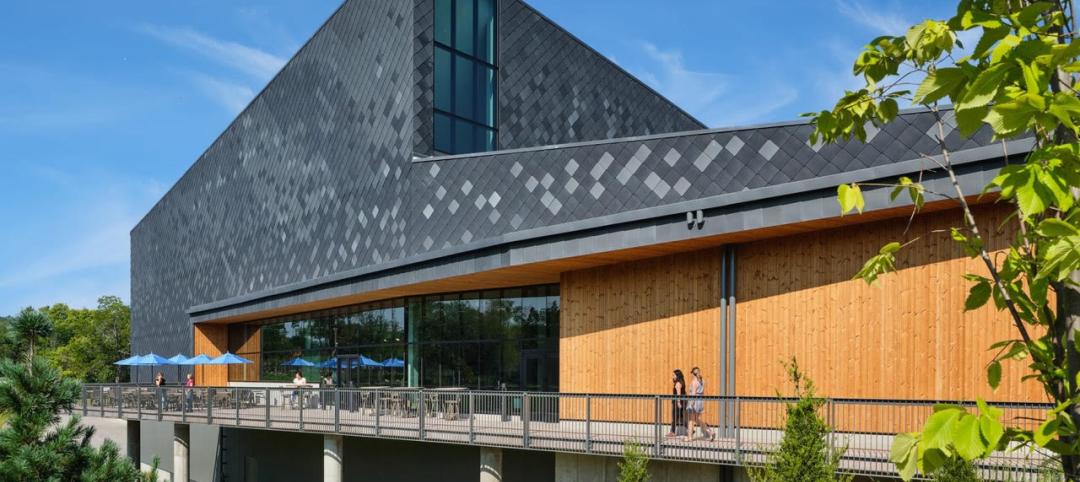Here is a roundup of the most popular AIA/CES Discovery courses on BD+C's continuing education website, BDCUniversity.com. Visit www.BDCuniversity.com to earn 1.0 AIA CES learning units for each successfully completed exam.
1. Applying Modern Energy Codes to Building Envelope Retrofits. When applying current energy codes to existing buildings, a number of issues arise, particularly where the building exterior is concerned. Moreover, envelope assemblies tend to have long life cycles, which can make them difficult and costly to effectively upgrade. www.BDCuniversity.com/applying-modern-energy-codes-building-envelope-retrofits
2. Cool Roofs Can Reduce Peak Energy Demand. This course provides an analysis of the effect of cool or highly reflective roofs in reducing peak demand charges, which may account for a significant portion of monthly electric bills in both new and existing air-conditioned commercial buildings in all North American climate zones. www.BDCuniversity.com/cool-roofs-can-reduce-peak-energy-demand
3. Building Wood Towers: How High Is Up for Timber Structures? The recent push for larger and taller wood structures may seem like an architectural fad—plenty of hype, but only a few dozen completed projects globally. Concrete and steel still rule the world of mid- and high-rise construction. Still, Building Teams around the world are starting to use more large-scale structural wood systems. www.BDCuniversity.com/building-wood-towers-how-high-timber-structures
4. Windows, Doors & Storefronts: Optimizing Safety, Durability, and Client Satisfaction. In nonresidential construction, Building Teams are finding that product and system selection is becoming increasingly complicated, due to increased demands from building occupants, according to fenestration experts. www.BDCuniversity.com/windows-doors-storefronts-optimizing-safety-durability-and-client-satisfaction
5. Guidelines for Designing Low-slope Membrane Roof Systems. Critical aspects of roof system designs are often left unaddressed, resulting in incomplete contract documents. This course identifies the information roofing contractors generally need from roof system designers to provide complete and building code-compliant low-slope roof systems. www.BDCuniversity.com/guidelines-designing-low-slope-membrane-roof-systems
6. Wet-applied Coatings and Finishes for Commercial and Institutional Projects. The rapid pace of development of improved liquid-applied materials and finishes has given Building Teams new options. These sprayable, paintable, or “gunnable” products can add performance and sustainability benefits and reach new levels of resiliency and durability. www.BDCuniversity.com/wet-applied-coatings-and-finishes-commercial-and-institutional-projects
7. Pumped-up Recreation Centers. Sports and recreation used to be confined to dedicated, often isolated, settings. That’s no longer the case. Adopting facility layouts from Asian and European models, today’s sports and recreational buildings are becoming social hubs that accommodate a variety of community needs. www.BDCuniversity.com/pumped-recreation-centers
8. Building Envelope Commissioning: 8 Strategies for Success. Building enclosure commissioning—BECx—is intended to assure building quality by establishing an explicit process to verify that a building enclosure is designed and constructed to meet the owner’s objectives. The concept of building enclosure commissioning has been around for several decades, but it has not been well defined, understood, or utilized. www.BDCuniversity.com/building-envelope-commissioning-8-strategies-success
9. Enhancing Interior Comfort While Improving Overall Building Efficacy. Providing more comfortable conditions to building occupants has become a top priority in today’s interior designs. Optimized daylighting, shading strategies, well-coordinated lighting controls, and underfloor air distribution systems can contribute to improved occupant comfort and energy savings. www.BDCuniversity.com/enhancing-interior-comfort-while-improving-overall-building-efficacy
Visit www.BDCuniversity.com to earn 1.0 AIA CES learning units for each successfully completed exam.
Related Stories
Market Data | Apr 1, 2024
Nonresidential construction spending dips 1.0% in February, reaches $1.179 trillion
National nonresidential construction spending declined 1.0% in February, according to an Associated Builders and Contractors analysis of data published today by the U.S. Census Bureau. On a seasonally adjusted annualized basis, nonresidential spending totaled $1.179 trillion.
Affordable Housing | Apr 1, 2024
Biden Administration considers ways to influence local housing regulations
The Biden Administration is considering how to spur more affordable housing construction with strategies to influence reform of local housing regulations.
Affordable Housing | Apr 1, 2024
Chicago voters nix ‘mansion tax’ to fund efforts to reduce homelessness
Chicago voters in March rejected a proposed “mansion tax” that would have funded efforts to reduce homelessness in the city.
Standards | Apr 1, 2024
New technical bulletin covers window opening control devices
A new technical bulletin clarifies the definition of a window opening control device (WOCD) to promote greater understanding of the role of WOCDs and provide an understanding of a WOCD’s function.
Adaptive Reuse | Mar 30, 2024
Hotel vs. office: Different challenges in commercial to residential conversions
In the midst of a national housing shortage, developers are examining the viability of commercial to residential conversions as a solution to both problems.
Sustainability | Mar 29, 2024
Demystifying carbon offsets vs direct reductions
Chris Forney, Principal, Brightworks Sustainability, and Rob Atkinson, Senior Project Manager, IA Interior Architects, share the misconceptions about carbon offsets and identify opportunities for realizing a carbon-neutral building portfolio.
Reconstruction & Renovation | Mar 28, 2024
Longwood Gardens reimagines its horticulture experience with 17-acre conservatory
Longwood Gardens announced this week that Longwood Reimagined: A New Garden Experience, the most ambitious revitalization in a century of America’s greatest center for horticultural display, will open to the public on November 22, 2024.
Office Buildings | Mar 27, 2024
A new Singapore office campus inaugurates the Jurong Innovation District, a business park located in a tropical rainforest
Surbana Jurong, an urban, infrastructure and managed services consulting firm, recently opened its new headquarters in Singapore. Surbana Jurong Campus inaugurates the Jurong Innovation District, a business park set in a tropical rainforest.
Cultural Facilities | Mar 27, 2024
Kansas City’s new Sobela Ocean Aquarium home to nearly 8,000 animals in 34 habitats
Kansas City’s new Sobela Ocean Aquarium is a world-class facility home to nearly 8,000 animals in 34 habitats ranging from small tanks to a giant 400,000-gallon shark tank.
Market Data | Mar 26, 2024
Architecture firm billings see modest easing in February
Architecture firm billings continued to decline in February, with an AIA/Deltek Architecture Billings Index (ABI) score of 49.5 for the month. However, February’s score marks the most modest easing in billings since July 2023 and suggests that the recent slowdown may be receding.

















